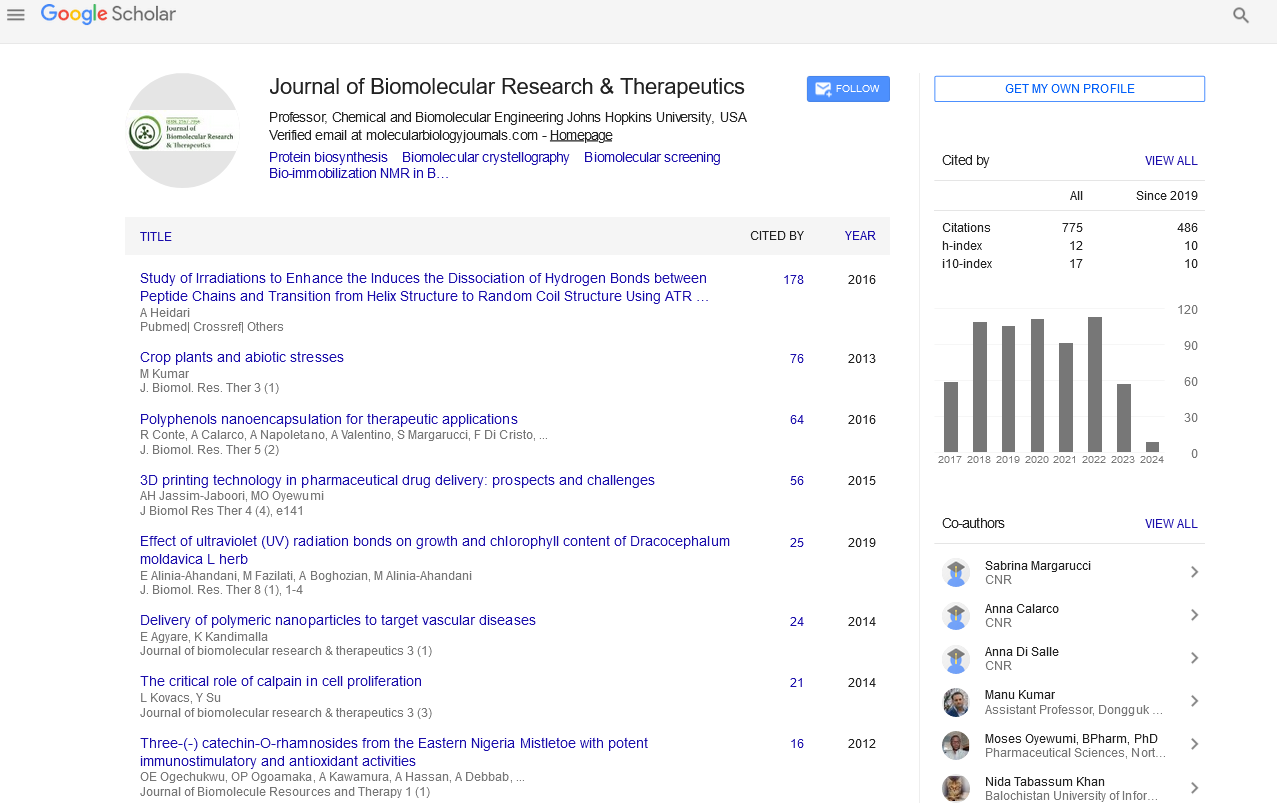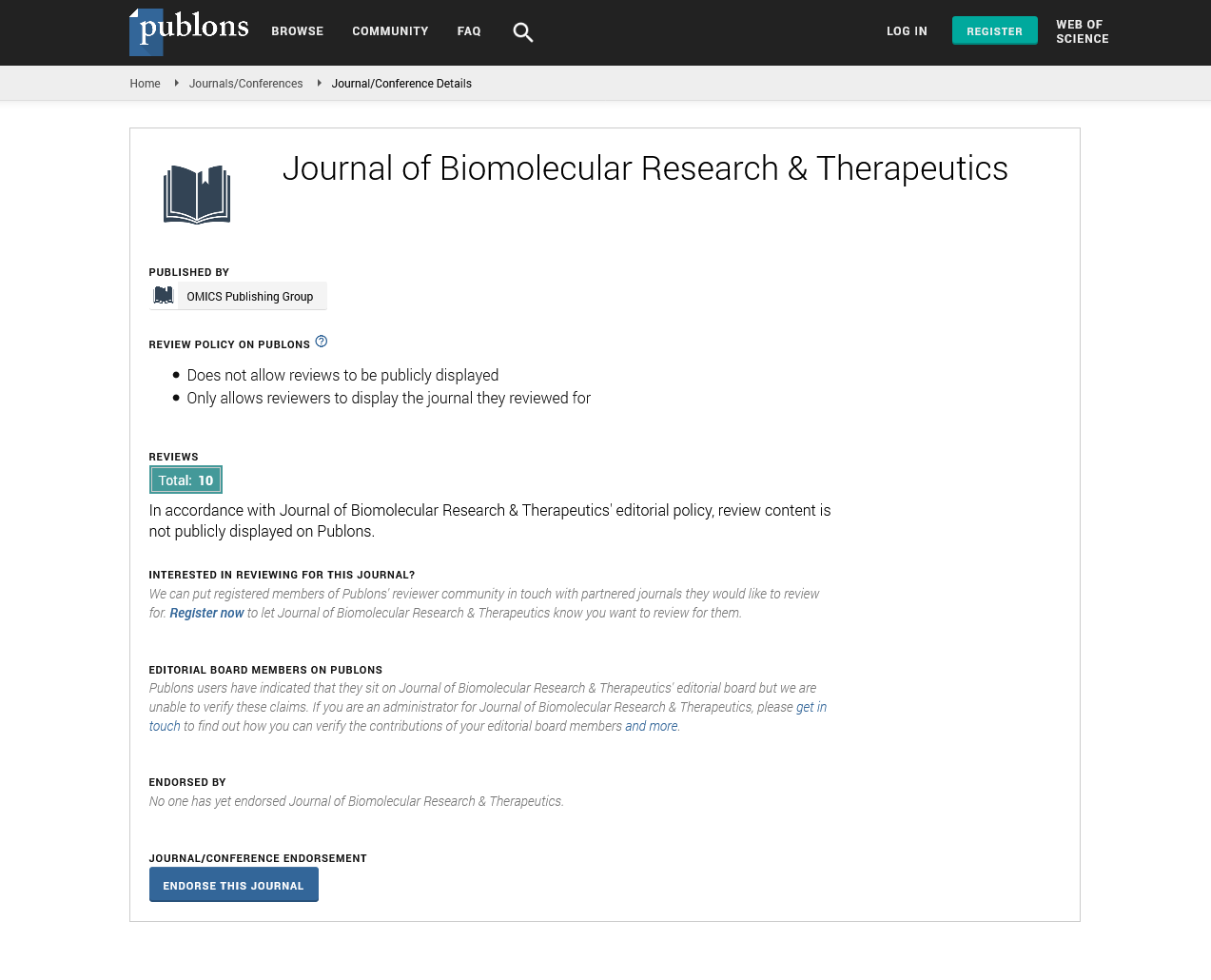PMC/PubMed Indexed Articles
Indexed In
- Open J Gate
- Genamics JournalSeek
- ResearchBible
- Electronic Journals Library
- RefSeek
- Hamdard University
- EBSCO A-Z
- OCLC- WorldCat
- SWB online catalog
- Virtual Library of Biology (vifabio)
- Publons
- Euro Pub
- Google Scholar
Useful Links
Share This Page
Journal Flyer

Open Access Journals
- Agri and Aquaculture
- Biochemistry
- Bioinformatics & Systems Biology
- Business & Management
- Chemistry
- Clinical Sciences
- Engineering
- Food & Nutrition
- General Science
- Genetics & Molecular Biology
- Immunology & Microbiology
- Medical Sciences
- Neuroscience & Psychology
- Nursing & Health Care
- Pharmaceutical Sciences
Abstract
Microfluidics and Artificial Blood Vessels as Vascular Prostheses: One Small Step for Vascular Research, One Giant Leap for Patient-Kind
Wendy Yang and Jianxiang Zhong
Studies show that in the US alone, approximately 8 million people are affected by Peripheral Vascular Disease and approximately 26.6 million have cardiovascular disease. This report will discuss the usage of lab-on-a-chip devices and artificial blood vessels as vascular prostheses and compare the strengths and weaknesses of the two methods to measure relative efficacy and possible applications in the fields of angiology and cardiology. Lab-ona- chip devices, machines which operate on a liquid scale of micro- or nano-meters and manipulate blood flow and shear stress, may be used as long-term, compact prostheses for smaller blood vessels. Artificial, man-made blood vessels, made either from cells or synthetic material, are become increasingly effective when they are made larger. Both methods may someday be instrumental in saving lives and eliminating vascular disease.


